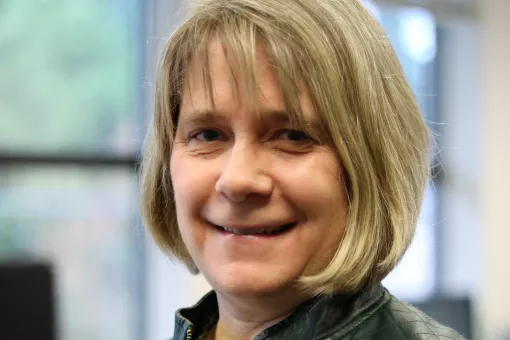Janele Nelson currently serves as the Association Mission Director. She shares her thoughts on Diversity, Equity, and Inclusion work at the Y.
When thinking of why diversity, equity, and inclusion are important to me, I immediately thought of two terms: ahavah and shalom. Both are powerful Hebrew words foundational to the Jewish faith and central to Christianity and Islam. These words came to me because my faith is central to my worldview and as a Christian, I desire to be inclusive and to work towards a more equitable and just world.
Ahavah describes the love God has for all people equally and the love God asks humans to have for God and one another. It is an active love springing forth from a deep spiritual connection to the love of the Creator. Ahavah is the condition you create when you give love, a space of intentional, mutual, unconditional acceptance and favor, not earned but freely given. Shalom is the vision of how the world should be and will be someday. A world restored to a place of wholeness, completeness, health, safety, and prosperity for everyone. It is often referencing the conditions that foster and sustain a thriving atmosphere for all.
For me, Shalom is the vision of diversity, equity, and inclusion while Ahavah is the means to get there.
I am so grateful our YMCA is dedicated to learning how to be more inclusive and is taking seriously the inequities that many face each day. I pray the diversity of our YMCA will increase and that it can be an example of shalom. I desire our YMCA to be a place where we will all accept the challenge to build bridges of access and connections that empower agency in those who are different from us. I envision the YMCA as a place where the “we” becomes top of mind, where the “us and them” dissipates, and where each person can personally thrive.
Living out equity and inclusion is all very important to me because of the worldview Jesus has awakened in my heart. Let me share with you one example from the life of Jesus that inspires me. An example of how through his words and actions he challenged the inequities, leveled hierarchal and patriarchal systems, and erased the numerous lines and walls of the “us and them” that had locked both the oppressed and the oppressors in the death grip of the status quo.
It is recorded and culturally understood that Jesus walked through Samaria, the forbidden territory of the “unclean” people. A people with whom his Jewish tribe would not associate. This intentional inclusive act of love busted down the walls between us and them – it was shocking. On his trip through Samaria, Jesus became more radical when he initiated a conversation with a Samaritan woman at the well, a cultural taboo. In that conversation, he shared a vision of a time when all people will worship together as one someday, which broke the exclusivity of the Jewish religion. Reflecting on the woman’s actions, it appears the encounter established within her the value Jesus had shown her and gave her a vision of one day all living in shalom.
Love changed her.
I desire to be an agent of this kind of love. A love that causes me to go out of my way to be with those who are not welcome or those who do not feel valued or hopeful of their future. I desire to inspire others to have hope and a vision of shalom. I desire to have the courage to break down the systems that entangle us all. In so many ways I feel our communities, our society, are settling for so much less than we are meant to be.
You all at the YMCA do daily simple acts of love that demonstrate an inclusive and equitable love.
To love in a way that changes this unjust, inequitable, exclusive world is not for the faint of heart. It takes courage and hopefulness that I often cannot muster on my own. But for me, I believe the Spirit of God is for us all and with us all. When I feel weak and hopeless in these trying days, I remember the faith God has in us all to fulfill the two greatest commandments: to “love God with all your heart, and with all your being, and with all your mind, and with all your strength; and to love your neighbor as yourself” (Mark 12).
Grateful to be on this journey of love with you all.
